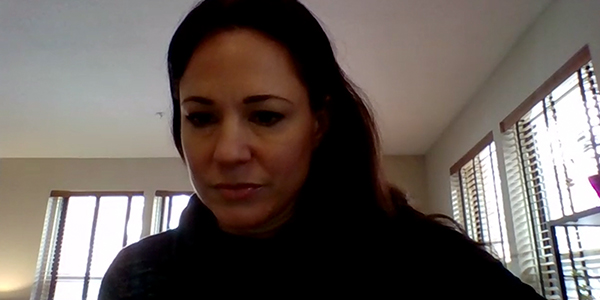Concerned about a rising backlog, NERC’s Standards Committee is accelerating the pace at which it approves standard authorization requests (SARs) for industry comment, leading some members to worry about the ability of stakeholders to properly review a potential rush of postings.
The issue arose at the committee’s conference call on Wednesday, during which participants were presented with six separate SARs and asked to authorize their posting for a 30-day comment period, along with solicitation of SAR drafting team members:
-
-
- Operational data exchange simplification — revisions to IRO-010-2 (Reliability coordinator data specification and collection) and TOP-003-3 (Operational reliability data). This SAR was authorized for a formal comment period, which requires SAR drafting team members to reply to individual comments; comment periods on the other SARs are informal.
- Revisions to MOD-025-2 (Verification and data reporting of generator real and reactive power capability and synchronous condenser reactive power capability) and to:
- PRC-019-2 (Coordination of generating unit or plant capabilities, voltage regulating controls and protection);
- PRC-023-4 (Transmission relay loadability);
- PRC-002-2 (Disturbance monitoring and reporting requirements); and
- VAR-002-4.1 (Generator operation for maintaining network voltage schedules).
-
Standards Committee meetings in November and December featured just two SARs each. Soo Jin Kim, NERC’s manager of standards development, explained that an attempt to limit the schedule of postings last year amid the COVID-19 pandemic had led to a slowdown in the normal pipeline of standards approvals that now must be addressed.
“NERC received significant feedback that we need to … pace out the work. And so we took that seriously; we were pacing out the postings and also all the SARs that we were bringing forward to industry,” Kim said. “We’re switching gears now, and we are bringing forward all of the SARs that have been kind of lying in wait. And so that is why this agenda is pretty packed.”
The committee managed to address every SAR on the agenda, with chair Amy Casuscelli of Xcel Energy joking that she hadn’t expected to be able to do so. The workload also included approvals for Project 2019-06 (Cold weather) and 2016-02 (Modifications to CIP standards), both of which will be posted for 45-day formal comment periods, with ballot pools formed in the first 30 days and parallel initial ballots and non-binding polls on the violation risk levels and violations severity levels conducted during the last 10 days of the comment period.
But several members raised questions about the pace at which the committee planned to ask industry stakeholders for comments on the proposals — especially in the case of 2016-02, which involves revisions to 11 separate critical infrastructure protection (CIP) standards. A motion by Kent Feliks of American Electric Power to extend the comment period for this project by 15 days was carried by members, even though Howard Gugel, NERC’s vice president of engineering and standards, warned this might complicate efforts to clear NERC’s standards backlog.
“If a decision is made here that you only want one [open comment period] at a time, and you extend this comment period for 60 days, this really puts a huge wrench in … all of the standards going forward,” Gugel said.
Hostler Pushes for Greater Industry Voice
Marty Hostler, reliability compliance manager for the Northern California Power Agency, also abstained from voting on the SARs for MOD-025-2, PRC-019-2 and PRC-023-4 after arguing unsuccessfully that they should be submitted for formal comment periods rather than informal comments as proposed.
Hostler took issue with the SARS because they were proposed by NERC subcommittees or task forces with a relatively small membership — for the first, the Power Plant Modeling Verification Task Force, and for the second and third, the System Protection and Control Working Group. He argued that this meant their perspective was too limited, which may lead to SARs that stakeholders could not accept — reminding members that they rejected a SAR at their last meeting for this reason. (See “SAR Rejected over Industry Comments,” NERC Standards Committee Briefs: Dec. 9, 2020.)
“That’s why we should have formal comments; then it won’t be so subjective on us to determine if industry [supports the SARs]. We’ll actually know for a fact if they do,” Hostler said.
Leadership and Future Meetings
Housekeeping business conducted at Wednesday’s meeting included the election of representatives to the Standards Committee Executive Committee. Michael Puscas of ISO-NE, Barry Lawson of the National Rural Electric Cooperative Association and Venona Greaff of Occidental Chemical Corporation were elected without opposition.
Asked about a potential return to in-person meetings later in the year, Casuscelli said the committee’s leadership is considering its options but warned members “[not to] make travel arrangements yet.”
Steven Rueckert, director of standards at WECC, observed that NERC’s Board of Trustees has proposed a mix of virtual and in-person meetings even after the end of pandemic-related travel restrictions. (See NERC Considering Long-term Virtual Board Meeting Format.) Casuscelli acknowledged that this is an option for the committee but reminded participants that they “don’t always follow the Board.”




